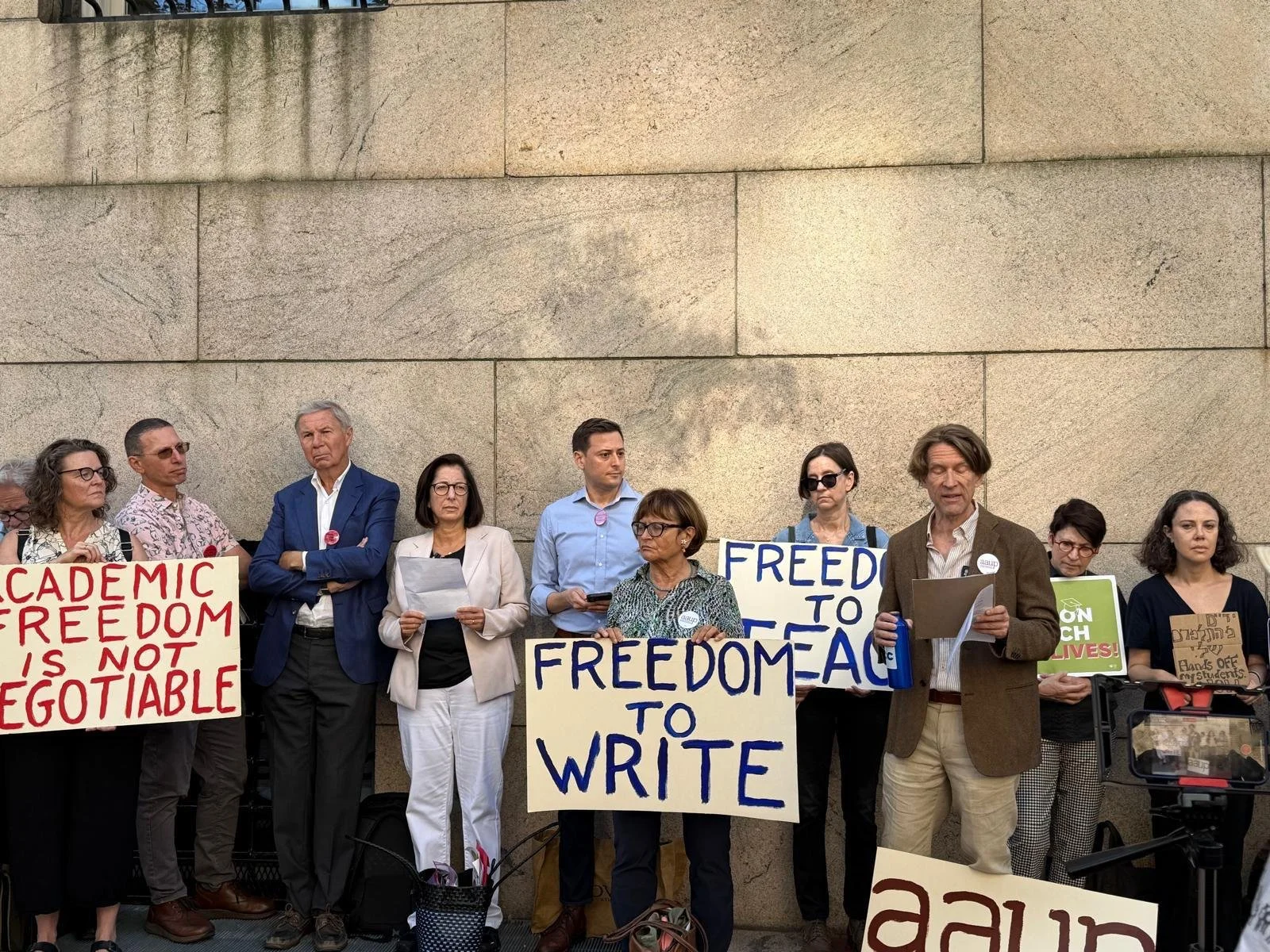Speak Out 2.0: Columbia Faculty Warns of Encroachment on Academic Freedom
(Photo/Bridgette Lang)
By Morningside Post Staff
On Tuesday, September 2, 2025, Columbia University's campus buzzed with anticipation for a new year: new classes, new opportunities, and a fresh start. But just steps away at the University's main gates, "Speak Out," a faculty-led protest for academic freedom, served as a sober reminder of the Trump administration’s impact on Columbia University.
Eight professors took the mic, including four from SIPA: Anya Schiffrin, Jean-Marie Guéhenno, Thanassis Cambanis, and Alexander Hertel-Fernandez. The demonstration, organized with support from Columbia’s chapter of the American Association of University Professors (AAUP), highlighted faculty concerns about threats to academic freedom and student safety.
“The heart of the university is to deliver the truth. If the university loses that, it loses everything,” Professor Jean-Marie Guéhenno said in his speech.
That concern has been front and center for Columbia faculty since last semester. Last April, also with support from AAUP, professors organized a 25-hour “Speak Out” to highlight threats to academic freedom and student safety.
Both demonstrations were prompted by Columbia’s concessions to the Trump administration. On March 21, 2025, former Interim University President Katrina Armstrong announced that the University would comply with demands from the administration in order to restore hundreds of millions of dollars in federal grants.
This accord included restructuring faculty governance and expanding oversight of its Middle East, South Asian, and African Studies Department. Over the summer, the University codified these measures in a formal agreement with the federal government. Columbia will pay $221 million in settlements while retaining some level of autonomy over faculty hiring and academic decision-making.
Faculty and the AAUP argue that Columbia’s financial and authority concessions undermine the foundation of a meaningful education: the freedom to pursue research and design courses that, while respectful of diverse perspectives, provoke debate, stimulate thought, and advance knowledge.
Professor Anya Schiffrin explained the modest turnout on Tuesday: “Students, and alumni all over the world, ask me, ‘Why isn’t anyone speaking out about academic freedom?’”
While some may question whether the University can actively safeguard academic freedom or if the battle has already been lost, professors believe that their collective voice is a last chance to reverse the damages. But the challenge compounds when students and faculty feel vulnerable speaking out due to concerns about citizenship status, job security, funding sources, or past encounters with police during protests.
Schiffrin continued, “Here is the answer: We all agree on campus that you can’t have a flourishing academy or teach properly if there is fear. And those of us who are speaking out on the first day of classes are here because the others are afraid to be. We’re speaking for those who are afraid to speak.”
Professor Thanassis Cambanis echoed that point, noting the particular vulnerability of adjunct professors. As contracted, non-tenured faculty, they face a higher risk of being dismissed than their tenured colleagues, which makes open protest especially risky.
With the administration unwilling to confront these concerns head-on, many believe the responsibility now falls to the campus community itself. For the professors at the gates, their stance was clear: preserving academic freedom will not come from administrators but from those willing to risk speaking out.

